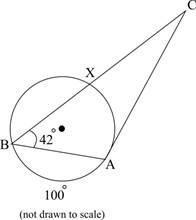
Mathematics, 04.07.2019 11:00 kayliebug2003
Drag each number to the correct location on the equations. each number can be used more than once, but not all numbers will be used. roy and elisa are buying tickets for the annual school concert. roy buys 6 adult tickets and 2 child tickets for a total of $66. elisa buys 5 adult tickets and 4 child tickets for a total of $62. determine the system of equations that can be used to find the cost of one adult ticket, a, and the cost of one child ticket, c. 8 5 4 62 2 6 128 66 roy __a + __c=__ elisa __a + __c=__

Answers: 1


Another question on Mathematics

Mathematics, 21.06.2019 15:40
What is the distance between the points 4,10 and -3,-14 on the coordinate plane
Answers: 2

Mathematics, 21.06.2019 17:00
How many of the 250 grandparents in the population would you expect to prefer online shopping with merchant a? merchant a: 4 merchant b: 6 merchant c: 2 merchant d: 3 other: 5 none: 5 answer choices: a.about 4 b.about 8 c.about 40 d.about 21
Answers: 1

Mathematics, 21.06.2019 17:50
Jace wrote a sentence as an equation. 56 is 14 more than a number. 14+ = 56 which statement best describes jace's work? jace is not correct. the phrase more than suggests using the symbol > and jace did not use that symbol. jace is not correct. he was correct to use addition, but the equation should be 56+ p = 14 jace is not correct. the first number in the sentence is 56, so the equation should start with 56. jace is correct. the phrase more than suggests addition, so jace showed that 14 plus a variable equals 56. o
Answers: 1

Mathematics, 21.06.2019 20:30
Does the function satisfy the hypotheses of the mean value theorem on the given interval? f(x) = 4x^2 + 3x + 4, [−1, 1] no, f is continuous on [−1, 1] but not differentiable on (−1, 1). no, f is not continuous on [−1, 1]. yes, f is continuous on [−1, 1] and differentiable on (−1, 1) since polynomials are continuous and differentiable on . there is not enough information to verify if this function satisfies the mean value theorem. yes, it does not matter if f is continuous or differentiable; every function satisfies the mean value theorem.
Answers: 1
You know the right answer?
Drag each number to the correct location on the equations. each number can be used more than once, b...
Questions



Mathematics, 11.02.2021 23:20




Mathematics, 11.02.2021 23:20





SAT, 11.02.2021 23:20


English, 11.02.2021 23:20

Mathematics, 11.02.2021 23:20


Social Studies, 11.02.2021 23:20



Mathematics, 11.02.2021 23:20




